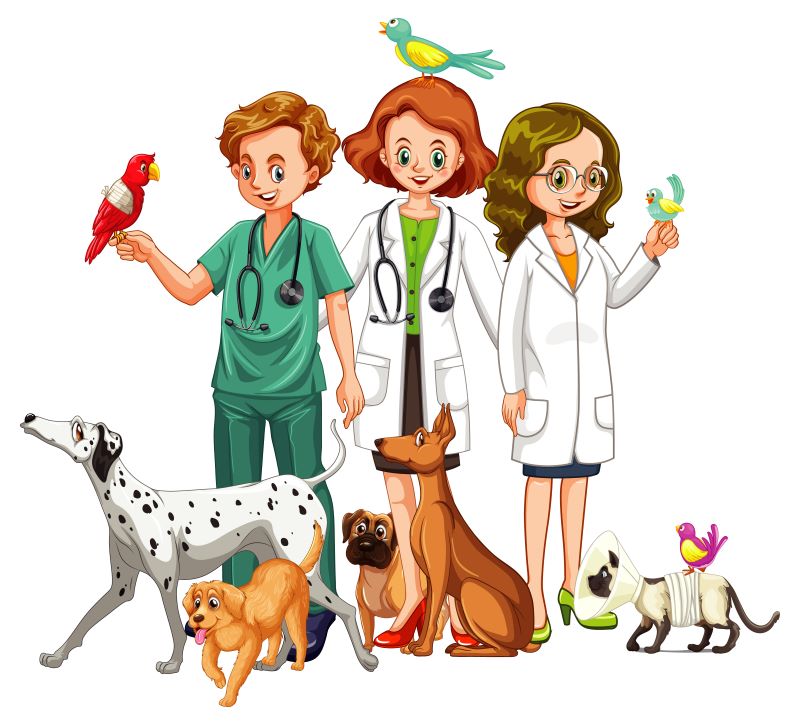News & Blog
Veterinary and Livestock Development Assistant (VLDA): A Gateway to Animal Care and Management
Livestock plays a crucial role in rural economies, providing livelihoods, nutrition, and even cultural significance. Behind the scenes of this vital sector are professionals who ensure the well-being of animals and the growth of livestock enterprises. Among them, Veterinary and Livestock Development Assistants (VLDA) stand out as key contributors to this essential work.
Whether you're considering a career in animal care or are simply curious about how livestock management impacts our lives, let’s explore the significance, responsibilities, and opportunities associated with VLDA.
Who is a Veterinary and Livestock Development Assistant?
A VLDA is a trained professional specializing in the care, health, and management of livestock. They act as a bridge between veterinarians and farmers, ensuring that animals receive proper care and that farming practices are optimized for sustainability and profitability.
From diagnosing common animal health issues to advising on breeding and nutrition, VLDAs play an indispensable role in rural and agricultural development.
Key Responsibilities of a VLDA
-
Animal Health Care
- Conducting basic health check-ups and administering vaccinations.
- Assisting veterinarians in surgeries or complex procedures.
- Treating minor injuries and illnesses in livestock.
-
Nutrition Management
- Advising farmers on balanced diets for livestock.
- Monitoring growth and productivity linked to proper feeding.
-
Artificial Insemination and Breeding
- Helping improve livestock breeds through artificial insemination techniques.
- Ensuring healthy breeding practices for maximum output.
-
Disease Prevention
- Educating farmers on disease control measures.
- Monitoring for outbreaks and coordinating with veterinarians during emergencies.
-
Sustainable Livestock Management
- Promoting eco-friendly farming practices.
- Ensuring humane treatment of animals.
Scope and Job Opportunities
The scope of a career as a VLDA is vast, with increasing demand in rural and urban areas alike. As agriculture and animal husbandry sectors continue to grow, skilled professionals are needed to meet the challenges of modern livestock management.
Scope in Various Sectors:
-
Government Employment
- Animal Husbandry Departments
- Veterinary Hospitals and Clinics
- Livestock Development Projects
-
Private Sector Opportunities
- Dairy Farms and Poultry Farms
- Meat Processing Units
- Veterinary Pharmaceutical Companies
-
Self-Employment
- Starting a livestock consultancy service.
- Operating a veterinary clinic.
- Providing artificial insemination and breeding services.
-
Research and Development
- Working with organizations focused on improving livestock productivity and disease prevention.
Job Roles for VLDAs
- Veterinary Assistant
- Livestock Health Supervisor
- Animal Husbandry Technician
- Artificial Insemination Specialist
- Livestock Farm Manager
Why Choose a Career as a VLDA?
-
Contribution to Society
Working as a VLDA means directly impacting the lives of farmers and ensuring animal welfare. Your efforts lead to healthier animals, better productivity, and improved livelihoods. -
High Demand in Rural Areas
With the growth of the dairy, poultry, and meat industries, skilled VLDAs are in high demand, especially in rural and semi-urban regions. -
Skill Development
This field provides diverse learning opportunities, from veterinary practices to management skills, ensuring professional growth. -
Job Satisfaction
There's immense satisfaction in knowing you’ve contributed to both animal well-being and rural development.
How to Become a VLDA
To pursue a career in this field, you can enroll in specialized courses like the Veterinary and Livestock Development Assistant (VLDA) program. These courses typically cover:
- Veterinary Anatomy & Physiology
- Animal Nutrition Management
- Artificial Insemination & Breeding
- General Veterinary Medicine
- Minor Surgery and Disease Control
Most programs include both theoretical knowledge and practical training, making graduates industry-ready.
A Bright Future in Livestock Management
As agriculture and animal husbandry evolve with technology, the role of VLDAs continues to grow in importance. From improving livestock productivity to promoting sustainable practices, a career as a VLDA is both fulfilling and impactful.
So, whether you're passionate about animals or looking to make a difference in rural development, VLDA is your gateway to a meaningful career.
************************************************
For More Information.............
National Institute of Health Science & Research
Phone: +91-161-5013232,
Mobile: +91-92176-03232, +91-93168-50388.
Email: nihsr_2001@yahoo.com
24/7 Helpline No. 78726-78726











